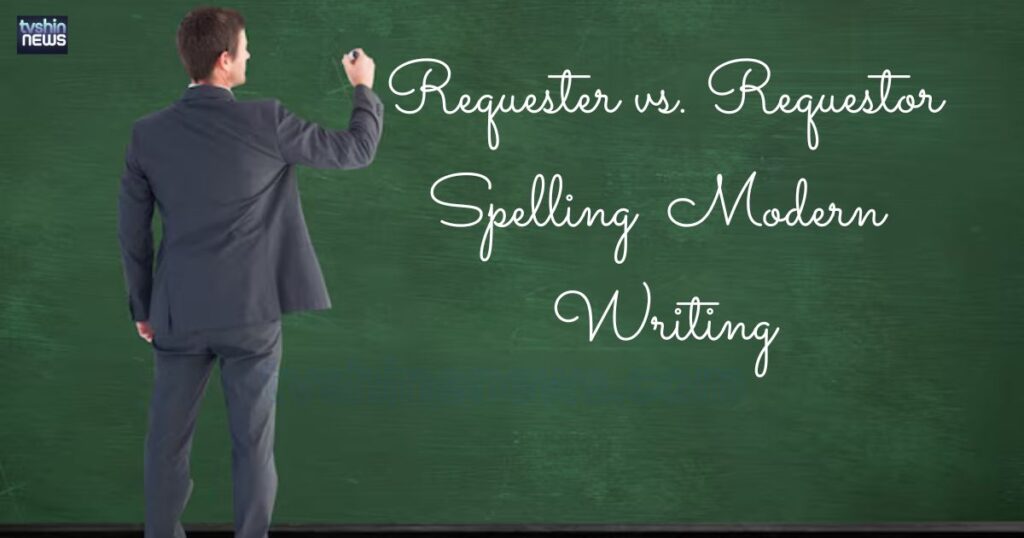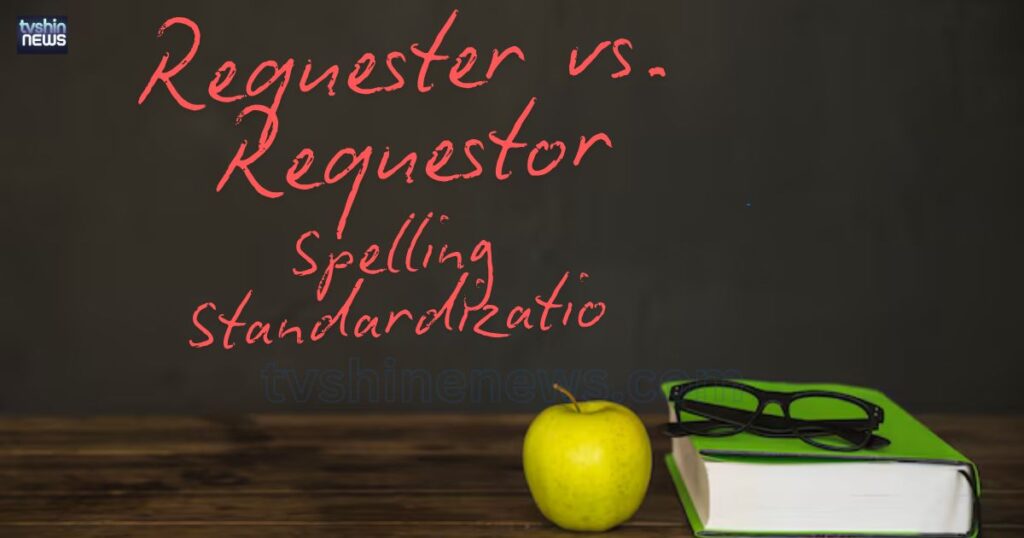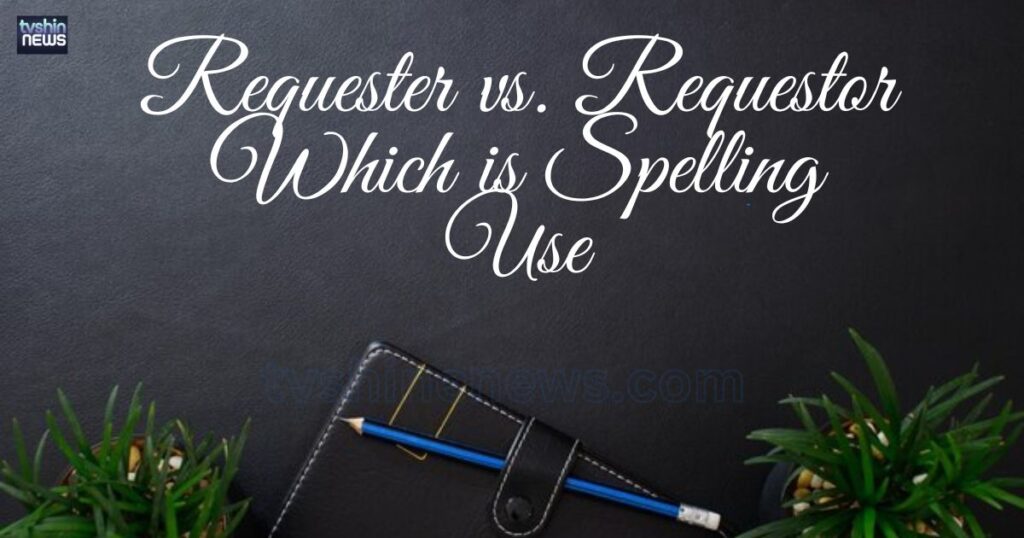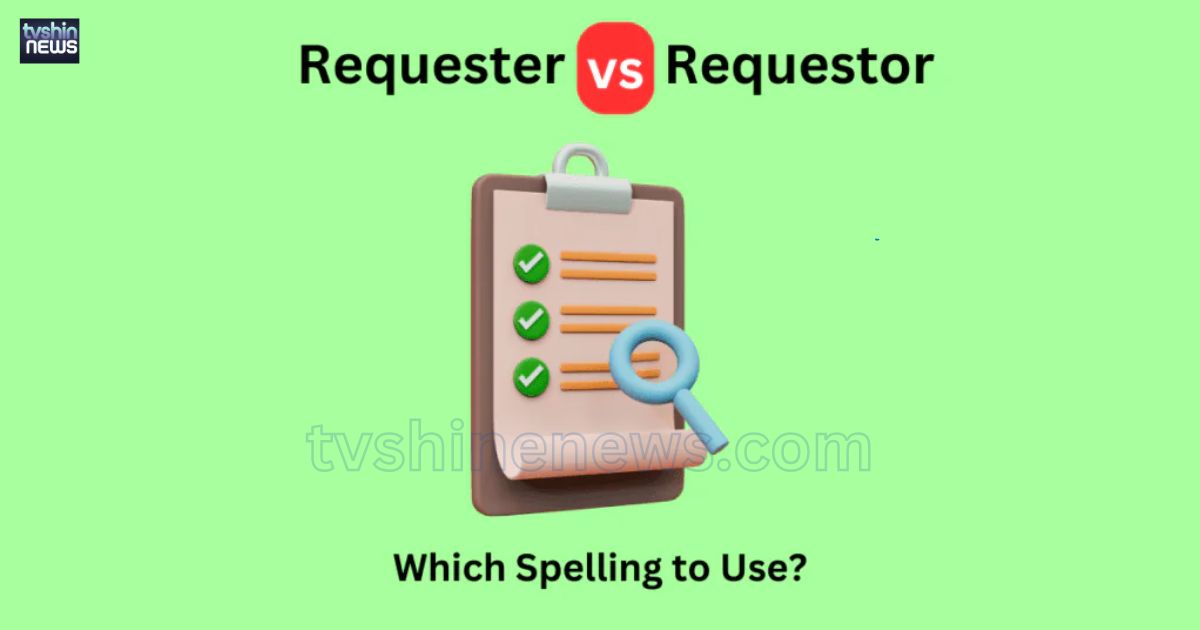The age-old spelling conundrum between “requester” and “requestor” has puzzled writers, editors, and language enthusiasts for generations.
In today’s digital world, where clarity in business communication and technical documentation is paramount, choosing the right spelling has become more crucial than ever. Let’s dive deep into this fascinating linguistic journey to uncover the truth behind these variant spellings.
The Battle of the Spellings: Requester vs Requestor
In the realm of English language usage, few spelling variations generate as much discussion as the requester/requestor debate. Both forms function as agent nouns, describing someone who makes a request. While many assume one spelling must be incorrect, the reality is more nuanced.
According to the Merriam-Webster dictionary and the Oxford English Dictionary, both spellings are technically acceptable, though usage patterns reveal interesting preferences across different contexts.
Etymology: Tracing the Roots
Understanding the origin of these spellings requires exploring the Latin etymology of “request.” The word stems from the Latin “requirere,” which transformed into “requestus” in Medieval Latin. The evolution of this term showcases the fascinating interplay between Latin and Germanic influences on English.
Evolution of the Suffix: -er vs. -or
The variation between -er and -or suffixes reflects a broader pattern in English word formation. The Germanic suffix “-er” represents one of the oldest ways to form agent nouns in English, while the “-or” ending comes from Latin influence. Consider these parallel examples:
advisor/adviser investor/invester conductor/conducter
Style Guides and Dictionaries Weigh In

Major style guides take varying stances on this spelling choice. The Chicago Manual of Style tends to favor “requester,” while many legal style guides prefer “requestor.” This split reflects the complex nature of English language evolution and the role of industry conventions in shaping language use.
Industry-Specific Preferences
Different sectors have developed their own conventions regarding these spellings. Here’s how various industries typically approach the choice:
Legal and Business Contexts
In legal terminology, “requestor” often appears more frequently, particularly in formal documents and contracts. This preference likely stems from the legal profession’s historical connection to Latin-based terminology. Major law firms and courts consistently use “requestor” in their documentation, creating a de facto standard within the legal community.
Technology and Software Development
The technology sector, particularly in API documentation, shows interesting variation. While both spellings appear in technical documentation, “requester” has gained prominence in recent years, possibly due to its simpler, more streamlined appearance. Major tech companies like Google and Microsoft have style guides that specifically address this choice.
Customer Service and Support
In customer service communication, both forms appear regularly. However, “requester” tends to dominate in customer-facing materials, possibly because it feels more approachable and aligns with contemporary writing trends that favor simpler forms.
Regional Variations
Regional language preferences play a significant role in spelling choices. American English tends to favor “requester,” while British English shows more variation between the two forms. Canadian and Australian English often follow British patterns but show increasing influence from American usage.
Context Matters: When to Use Which
The choice between these spellings often depends on the context of use. In formal writing, particularly academic or legal documents, “requestor” might lend the desired level of formality. In informal contexts or digital communication, “requester” often feels more natural and contemporary.
Common Mistakes and How to Avoid Them

Maintaining consistency ranks among the most crucial aspects of handling these spelling variations. Organizations should establish clear guidelines in their style guides and use word processor tools to maintain consistency throughout documents.
The Impact of Spelling on SEO and Online Visibility
From an SEO impact perspective, both spellings matter. Search engines recognize both variants, but usage patterns suggest that content creators should consider including both forms to maximize visibility. Website analytics often show that users search for both spellings, making it important to account for this variation in digital content strategy.
Expert Opinions: What Linguists Say
Linguistic experts emphasize that the variation between these spellings reflects natural language evolution rather than a strict right/wrong dichotomy. The persistence of both forms demonstrates the dynamic nature of English and its ability to maintain multiple valid variants.
Practical Tips for Writers and Editors
For content creators and editors, here are key considerations:
- Consider your audience and industry standards
- Maintain consistency within individual documents
- Check style guides relevant to your field
- Document your choice in organizational style guides
- Use digital tools to enforce consistency
Creating Style Guides for Organizations
Organizations should develop clear guidelines addressing this spelling choice. Consider factors like:
- Industry standards
- Target audience preferences
- Existing documentation patterns
- International considerations
- Digital findability
The Role of Technology in Spelling Standardization

Modern word processors and digital tools have significantly influenced how organizations handle spelling variations. Microsoft Word, Google Docs, and other popular platforms often include both “requester” and “requestor” in their dictionaries, though their spell-check algorithms may suggest one form over the other based on regional settings.
Corporate style checkers and writing assistance tools like Grammarly have also begun incorporating more nuanced approaches to handling these variations, recognizing that context matters more than strict rules.
Cultural Impact on Spelling Preferences
The choice between “requester” and “requestor” often reflects deeper cultural patterns in language use. Organizations with strong ties to traditional institutions, such as government agencies or established law firms, typically gravitate toward the more formal “requestor” spelling.
In contrast, tech startups and digital-first companies often prefer the simpler “requester” form, reflecting their emphasis on clarity and accessibility. This cultural divide extends beyond mere spelling preference, often signaling broader organizational values and communication philosophies.
International Business Considerations
In today’s globalized business environment, the choice between “requester” and “requestor” carries implications for international communication. Organizations operating across borders must consider how their spelling choices affect document clarity for non-native English speakers.
Research suggests that the “-er” ending typically proves easier for international audiences to process, though formal international business documents often retain the “-or” form to maintain consistency with established conventions.
Digital Marketing Strategy and Keyword Planning
Content strategists and digital marketers must carefully consider both spellings when developing their SEO and content plans. Analytics data shows that search patterns for these terms vary by industry and region, making it crucial to incorporate both variations in metadata and content strategy.
However, visible content should maintain consistency to avoid confusing readers or appearing unprofessional. This creates an interesting challenge for digital marketers: optimizing for search while maintaining content quality.
Future Trends in Language Evolution

Linguistic analysis suggests that English is gradually moving toward simpler, more standardized forms, potentially favoring the “-er” ending in the long term.
However, specialized fields like law and academia continue to preserve traditional forms, suggesting that both spellings will likely persist. The increasing influence of digital communication and international English usage may accelerate this evolution, though the outcome remains uncertain.
Language experts predict that context-specific usage patterns will continue to develop, with different industries maintaining their preferred forms while acknowledging alternatives.
These additional sections provide deeper insight into how the requester/requestor distinction affects various aspects of professional communication and language development.
Each perspective adds valuable context to help writers and organizations make informed decisions about their spelling choices.
Conclusion: Making Your Choice
In conclusion, the choice between “requester” and “requestor” underscores the intricate interplay between language evolution, industry conventions, and cultural preferences. Both spellings are valid, but selecting the appropriate one depends on context, audience, and purpose.
While “requester” dominates in modern, informal communication, “requestor” carries a formal tone suited for legal or academic contexts.
Consistency within documents and alignment with industry standards are critical for professionalism and clarity. For digital content, incorporating both variants in metadata can enhance search visibility without compromising quality.
Ultimately, this linguistic distinction reflects the adaptability of the English language, ensuring diverse yet practical options for writers, editors, and organizations navigating today’s globalized communication landscape.
FAQs: Quick Answers to Common Questions
Which spelling is most common in American English?
“Requester” is generally more common in American English, particularly in modern usage and digital communication.
Do major dictionaries prefer one spelling over the other?
Both Merriam-Webster and Oxford English Dictionary list both spellings as acceptable, though “requester” often appears as the primary entry.
How should I maintain consistency in my organization?
Choose one spelling and document it in your style guide. Use automated tools to check for consistency across all communications.
Does the choice affect document searchability?
Yes. For optimal searchability, consider including both spellings in metadata while maintaining a single consistent form in visible content.
Which form is preferred in legal documents?
Legal documents tend to favor “requestor,” though both forms are technically correct in legal contexts.
Should I use different spellings for different audiences?
It’s best to maintain consistency within your organization while considering your primary audience’s expectations and industry standards.
How do tech companies typically handle this spelling?
Technology companies, especially in software documentation, increasingly favor “requester” for its simplicity and alignment with modern usage patterns.
Are there regional differences in preference?
Yes. American English tends toward “requester,” while British English shows more variation between both forms.
Does academic writing prefer one form?
Academic writing often accepts both forms, though “requestor” may appear more frequently in formal research papers.
How should international organizations approach this choice?
International organizations should consider their primary audience and document their preference in their style guide while recognizing both forms as valid in different contexts.








